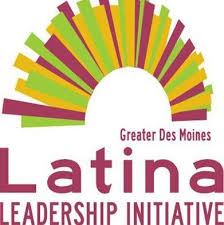Book excerpt: “The $80 Billion Gamble”
The inside story of how a suspicious ticket, hot dogs and Bigfoot foiled the biggest lottery fraud in U.S. history

PERRY BEEMAN AND TERRY RICH Jun 3, 2019 | 6:03 pm
9 min read time
2,054 wordsAll Latest News, Arts and Culture, Government Policy and Law
“The $80 Billion Gamble: The Inside Story of How a Suspicious Ticket, Hot Dogs and Bigfoot Foiled the Biggest Lottery Fraud in U.S. History,” by Perry Beeman and Terry Rich, gives an inside look at how investigators cracked what had become a nearly cold case that threatened the integrity of the $80 billion U.S. lottery industry. The book presents a tale of greed as computer security worker Eddie Tipton of the Multi-State Lottery Association worked to scam the system he was hired to protect. In this excerpt, Iowa Lottery officials establish fraud in key phone calls, the beginning of a yearslong investigation that brought plenty of suspense, and at times, humor. Canadian lawyer Philip Johnston represented Tipton, who remained anonymous at the time of these phone calls.
(Full disclosure: Perry Beeman is managing editor of the Business Record. Publisher WriteBrain is part of Business Publications Corp., the parent company of Business Record. Terry Rich is retired CEO of the Iowa Lottery. Eddie Tipton is in jail.)
Excerpt:
On December 5, [Iowa Lottery public relations exec Mary] Neubauer called [Canadian lawyer Philip] Johnston, got his voice mail, and told him the package of documentation he had promised never arrived. [Iowa Lottery security director Steve] Bogle was listening to this conversation, and all others, with Johnston.
Johnston called Neubauer back the next day and dropped a bombshell. [He earlier had said he bought the ticket that won a $16.5 million Hot Lotto prize.]
“I fibbed. I wasn’t the person to buy the ticket,” Johnston said. “I was just trying to claim the ticket on behalf of someone who wants to remain anonymous.” Others would be in contact, he said. Crawford Shaw, a New York attorney, called at one point and said a Des Moines firm would be in contact.
“The reason I didn’t call you back is I’ve been doing some research on the best way to claim this thing, OK?” Johnston began. So far, so good. But not for long.
“I’ve got to tell you the problem all along has been, I told you I’m a lawyer — I told you all this — and I have a client who actually is the one who picked up the ticket and won the lottery,” Johnston continued.
Neubauer was not wearing a heart monitor or a blood pressure cuff during this call, but the readings would have been interesting.
“But he has instructed me, and continues to instruct me, [that he is] never to be identified.”
Neubauer: “That’s, that’s …” She couldn’t complete a sentence. She had just witnessed confirmation of fraud.
Johnston continued. “We went through all kinds of ramifications on how we could do this initially, then I say, ‘Well, call the Iowa Lottery.’ I called you. We went through that whole exercise. After we talked, I called him and I said, ‘Look, I am not prepared to say that I won the thing
because I didn’t really win it. You can give me the ticket and maybe I won it, technically, but I’m just not prepared to do that, OK?’ ”
Neubauer (blood pressure unknown): “OK …”
Her head was spinning. In an interview later, she recalled: “He said, ‘Well, you better find a solution, or we’ll just forfeit the thing.’ And I said, ‘That is crazy.’ And he says, ‘Well, it’s not your decision, is it? He’s a client of mine, OK?’ ”
Back to the phone call. Neubauer (sounding steady): “Right. Right.” Still spinning.
“Everything else I told you is true,” Johnston said.
Neubauer, who as a former journalist has a well-honed “b.s.” meter, was seething now.
“Unfortunately, I gave you a little fib there,” Johnston said. “But I was caught off guard there. I really was just looking for information from you initially.”
In October 2016, National Public Radio carried a story headlined, “How Small Fibs Lead to Big Lies.” The article explored research by University College London and Duke University, published in Nature Neuroscience.
The paper’s conclusions included this: “Many dishonest acts are speculatively traced back to a sequence of smaller transgressions that gradually escalated. From financial fraud to plagiarism, online scams and scientific misconduct, deceivers retrospectively describe how minor dishonest
decisions snowballed into significant ones over time. Despite the dramatic impact of these acts on economics, policy, and education, we do not have a clear understanding of how and why small transgressions may gradually lead to larger ones.”
In Tipton’s case, that might be a small act like checking to see if you could insert a code to alter lottery drawings just to see if you could do it … and a large act, like, say, committing the largest lottery fraud in U.S. history by manipulating drawings in multiple states.
“I am a greedy, selfish bastard. I want the fact
that I existed to mean something.”
–The late singer Harry Chapin
Johnston assured Neubauer that he had a plan, and all was well. He was working with Davis Brown, the Des Moines law firm, regarding how to redeem the ticket. And he spoke to Crawford Shaw, a lawyer in New York with whom he had done business.
“So we said, ‘What is the procedure we could come up with?’ Could we, for instance, set up a revocable trust with the beneficiary being the corporation that I think I alluded to in our first conversation?” Johnston said.
He said he wanted to use a corporation all along, but he didn’t think about a trust.
Neubauer mentioned that to her knowledge only publicly named individuals could claim a prize in Iowa, trust or no trust. “There have been trusts formed before to claim a prize, but to the best of my knowledge … a third-party trustee has never been the person to claim the prize,” Neubauer told Johnston.
“The difficulty with the situation you are discussing has to do with the piece of Iowa Code that specifies that lottery winners’ information MUST be public in Iowa,” Neubauer said. “And granted, the laws are different from state to state. And they are certainly much different in your country than they are here.”
Neubauer then explained that the Iowa law was intended to prevent fraud — to guard against some crook trying to cheat the money-filled system.
“Folks have been concerned from the very beginning of the lottery about organized crime or ne’er-do-wells trying to hide their income in that fashion,” Neubauer said. She didn’t say where lawyers representing drug dealers from the Caribbean fit in with those concerns.
Johnston offered a bit more information about the Mystery Winner. “This person does business all over the world. … The ticket is legitimate, he just doesn’t want his name disclosed,” he said.
Johnston said he had told his client he isn’t a “magician.” He couldn’t necessarily make all the ticket holder’s wishes appear.
In the latest conversation with Neubauer, Johnston said the clock clearly was ticking on the claim, which would be discarded if a solution that kept the Mystery Winner’s identity a secret couldn’t be negotiated.
Johnston had arranged for his New York lawyer friend to be trustee of a revocable trust. The beneficiary would be a corporation. The trustee would claim the ticket in Des Moines and face the press. Neubauer said she couldn’t say if that would work. She said she understood Johnston’s client wanted to remain anonymous.
“He WILL remain anonymous,” Johnston insisted.
“Everything you are talking about is probably just going to make it worse,” said Neubauer. “From a media curiosity perspective, if someone goes to this great length and tries to put in place all this blind trust information, from a PR and media perspective, you are probably just
going to make the media that much more ravenous for the information about what’s really going on here.”
And, of course, Neubauer had a point. Reporters can get ravenous — especially when there is free food at the newsroom dining desk — but they are especially aggressive when they think someone is trying to hide something the public has a right to know.
Neubauer had made the point in two separate conversations with Johnston: The Iowa Code requires that the winner’s identity be made public, whether the person hauled garbage in Rock Rapids, was a college professor in Waverly, or toiled as an IT wizard in Des Moines.
Johnston assured Neubauer that everything about this case was legal — another falsehood, as it turned out. It’s just that his client didn’t even want to be named. We assume he didn’t want to discuss his hot dog eating habits, either. [Tipton had bought two hot dogs along with the Des Moines lotto tickets, which turned out to be important to the case later.]
“Is there anything wrong in that, if the client doesn’t want to disclose, and you set up a trust?” Johnston asked Neubauer. “What is wrong with that? I’m a lawyer, this other person is a lawyer, we’d have the trustee. We have the winning ticket. It hasn’t been stolen. There isn’t anything illegal about that,” Johnston explained.
So that ruled out, at least in Johnston’s mind, one of the things that could go wrong with a ticket.
But what about the other possibilities?
— It was taken by a crooked convenience store clerk.
— It’s mutilated.
— It was claimed by someone who insisted on anonymity in Iowa, where state law doesn’t allow that.
— It was claimed by someone who insisted on anonymity, was barred from buying lottery tickets in Iowa because of direct professional ties to the lottery industry, and had tampered with the system to work around very long odds. Iowa law doesn’t allow that, either.
Neubauer and Bogle said they’d have to check with the Iowa Attorney General’s Office. In the meantime, Johnston, who had earlier said he had bought the ticket and described the clothes he was wearing, now told Neubauer he didn’t buy the ticket, wasn’t the man on the camera, and wasn’t in Des Moines the day the ticket was purchased.
“I’m not going to lie,” Johnston told his client after learning that the Iowa Lottery had video of the person who bought the ticket. “I told him, ‘I’m a lawyer, for God’s sake. Lawyers have a bad enough reputation as it is.’ I am not going to lie — I’ve already lied, I think.”
Lawyers’ rank in the public esteem has been a subject of steady debate and ratings. A 2017 Gallup Poll list of professions Americans considered the most honest and ethical found that nurses topped those ranked “high” or “very high.”
Newspaper reporters came in 13th and TV reporters 15th. Lawyers ranked 17th, above business executives, advertising practitioners, and members of Congress. Public relations workers didn’t make the top 20.
Neubauer, back on the call, probably had the word “liar” ringing in her ears. But she kept cool and professional.
“I compliment you for calling me today and sharing this information because we already knew it wasn’t you,” Neubauer said. “It clearly wasn’t you.”
Johnston then thought his brand, or at least his reputation, could use some triage.
“I’m not a bad guy,” Johnston said later as he described trying to find a legal way for his client to claim a prize that was the result of illegal doctoring of lottery computers. And his client, it turned out, couldn’t legally play the lottery.
Neubauer tried to bear down on the truth. She wanted the truth. She could handle the truth.
“You have said you are representing a client. Is your client the individual who went into the store and purchased the ticket?” Neubauer asked Johnston.
“Yep,” Johnston replied. “Yep.”
“OK. He personally purchased that ticket?” Neubauer asked, for confirmation.
“I believe so, yeah. That’s my information,” Johnston replied. Neubauer said she would check on a few things and call him back. “Just tell me exactly what we can or can’t do,” Johnston said. “I’m sorry I misled you a little bit. I was kind of forced to do that. I didn’t feel comfortable with it.”
Rich recalled that it was about this time that Iowa investigators kept information restricted to four or five members of the team in case the suspicious case of the unclaimed ticket was an inside job of some sort, but at this point, they had little reason to think it was.










